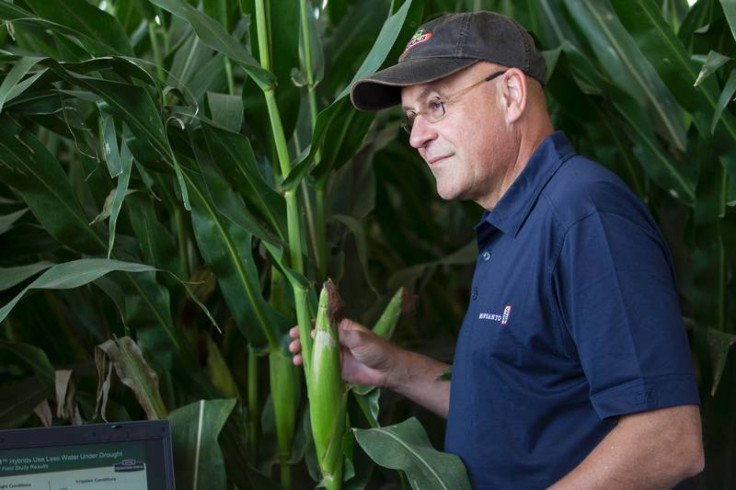Monsanto And Other Bio Crop Engineers Win World Food Prize Despite Controversy

A Monsanto Company (NYSE:MON) scientist and two other bio engineers have won this year's World Food Prize. Robert Fraley, Monsanto chief technology officer, was awarded $250,000 Wednesday for his role in what the World Food Prize Foundation recognizes as enhancing the global food supply.
The decision to give the award to makers of bio-engineered plants marks a first for the foundation's 26-year-old honor.
"Their work has made it possible for farmers in 30 countries to improve the yields of their crops, have increased incomes and feed a growing global population," said Kenneth M. Quinn, president of the World Food Prize Foundation and a retired U.S. diplomat. "This technology allows crops to be developed in short time frames that can also grow in unfavorable climatic conditions, such as extreme drought or heat, for instance."
The organization announced the news Wednesday in Washington, D.C., with Secretary of State John Kerry on hand to speak.
Genetic modification involves inserting bacterial genes from one organism into another's plant cells, a process developed in the 1980s by the two other scientists named in this year's prize, Marc Van Montagu, founder and chairman of the Institute of Plant Biotechnology Outreach at Ghent University in Belgium, and Mary-Dell Chilton, founder and researcher at Syngenta Biotechnology Organic food.
The major biotech crops grown commercially are corn, soybeans, canola and cotton. Some American farmers credited genetic modifications in corn with saving 2012's fields from total devastation as much of the U.S. battled the country's worst drought in 60 years.
Advocates say genetically modified crops are harmful to people, animals and the environment while the Foundation says bio-engineers have boosted the quantity and availability of food in the world.
"If we were to be deterred by a controversy, that would diminish our prize," said Quinn.
Genetically modified crop production is a $98.2 billion industry that accounts for about 12 percent of the world's farmland. The Foundation cites a study by the International Service for the Acquisition of Agri-biotech Applications that says 2012 marked the first year, since the technology was invented, that developing countries grew more biotech crops than industrial countries grew them.
However, a 2008 study by the World Bank and United Nations concluded that genetically modified crops would play only a small role in fighting world hunger.
The World Food Prize Foundation is partly funded by biotechnology companies.
© Copyright IBTimes 2024. All rights reserved.






















